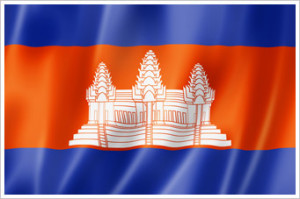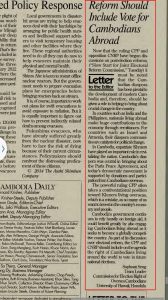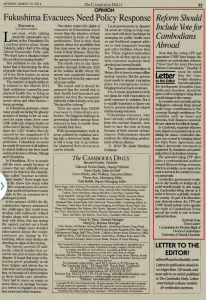Dual Citizenship Cambodia
How can you acquire Cambodian citizenship?
I. CITIZENSHIP BY BIRTH
Those falling into the following categories acquire Khmer citizenship by birth, regardless of the place of birth:
- children born to at least one Khmer parent;
- illegitimate children born to and recognized by at least one Khmer parent;
- children not recognized by the parents, but the court has passed a judgment stating that the child was born from at least one Khmer parent.
Those born in the Kingdom of Cambodia to foreign parents who were born and living legally in the Kingdom of Cambodia or to unknown parents also acquire Khmer citizenship at birth.
II. CITIZENSHIP BY DESCENT
Those born to at least one Khmer parent, regardless of the place of birth, are entitled to citizenship.
III. CITIZENSHIP BY NATURALIZATION
Those meeting the following requirements may apply for naturalization:
- obtain certification of good behavior and moral conduct by the chief of the commune or quarter of one’s residence;
- obtain certification of past criminal record stating the person has never been convicted of any criminal offense;
- at least 7 years of residence with a residence card in the Kingdom of Cambodia (reduced to 3 years for foreigners born in the country) (no residence requirement for those investing at least 1,250,000,000 Riels in the country or donating 1,000,000,000 Riels or more to the national budget, or for those offering any special merit or achievement for the country’s interest);
- currently residing in the Kingdom of Cambodia when applying for naturalization;
- ability to speak and write Khmer and some knowledge of Khmer history, with proof that the person can live in harmony in Khmer society, custom and tradition;
- mental and physical aptitude which will not cause danger or burden to the nation.
IV. CITIZENSHIP BY MARRIAGE
Those married to a Khmer spouse may apply for citizenship after 3 years of living together, after registration of a marriage certificate. Khmer citizens do not lose their Khmer citizenship because of their marriage with foreigners.



